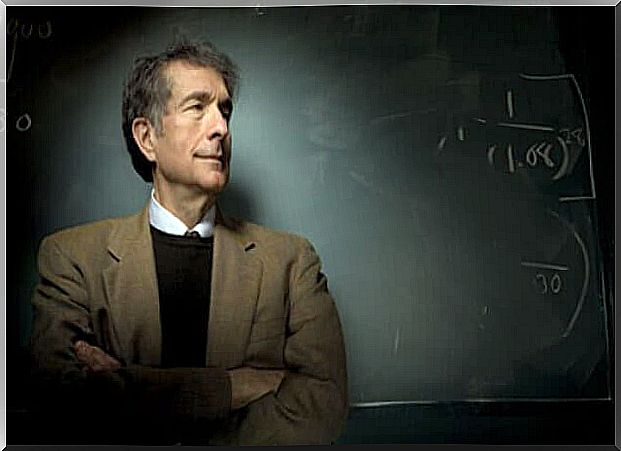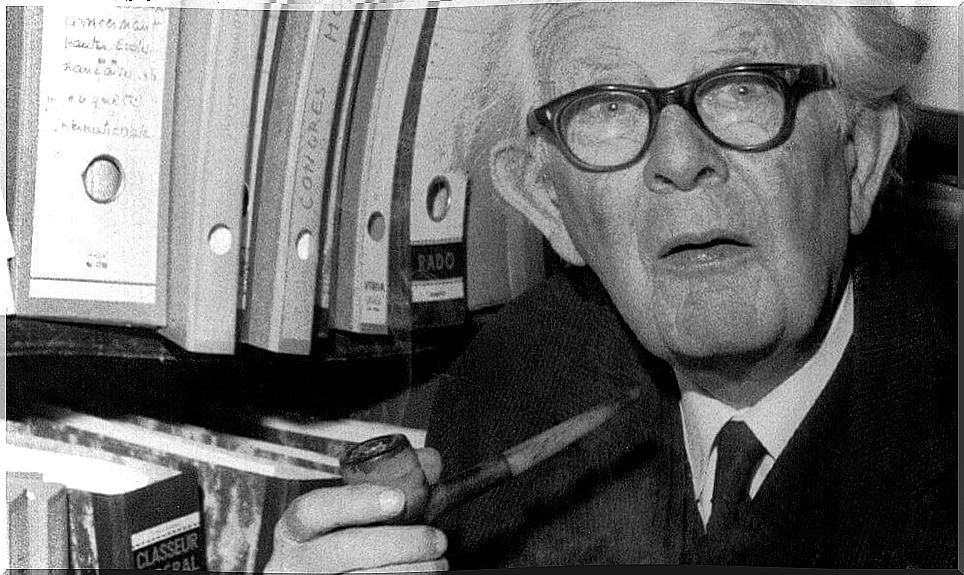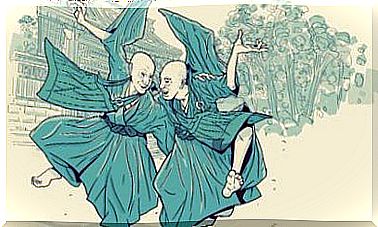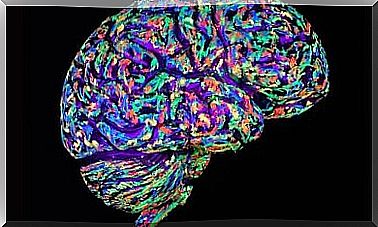Cognitive Psychology: What Is It And Who Was It That Founded It?

Cognitive psychology is currently one of the most influential and effective therapies used in recovery from mental illness. Although “cognitive” is not a very common term, it is very common in the world of behavioral science.
For anyone unfamiliar with psychology, let’s say that “cognitive” is a synonym for knowledge or thought.
Cognitive psychology is therefore the study of human behavior focused on unobservable mental aspects. They are aspects somewhere between the stimulus and the observable response.
In more understandable terms , cognitive psychology seeks to know which ideas are flourishing in the patient’s mind and how these affect their emotional response and behavioral response. How do these ideas affect how they feel and what do they do with it?
These days, cognitive therapy is often used to solve all kinds of psychological problems. This is because it is about observing how these cognitions or thoughts affect the patient’s behavior. In many cases, these cognitions determine their own behavior.
Therefore, treatment from this perspective focuses on identifying these thoughts, beliefs and mental arrangements, which do not correspond to reality and, in some cases, which are exaggerated. It works through a debate that consists of asking questions that create doubt about these cognitions.
First, the person or patient must identify and ask questions about their own beliefs. Then they will be prepared to reformulate them and create new cognitions. Hopefully they will be cognitions and thoughts more in line with objective reality.
The cognitive revolution
In the 1950s, the prevailing paradigm was behavioral psychology or learning psychology. Granted, it managed to explain a variety of psychological phenomena.
But it was still quite limited, since it could only explain the observable. Everything between stimuli and response was considered an epiphenomenon. It was the so-called behavioral “black box” and was marked as irrelevant to observable behavior.
When the behavioral approach came to a dead end, importance began to be given to other phenomena. For example, the phenomena that occurred in our minds between the moment we received a stimulus and the moment we gave an answer. That was when the researchers began to study the processes of reasoning, language, memory and imagination.

The same thing happened with Sigmund Freud’s psychoanalysis, a trend that also ruled at that time. Nor was it able to respond to many mental disorders, despite how revolutionary it was.
Roughly speaking, there are some studies that led to the emergence of cognitive psychology, such as:
- Advances in computer science and computation (Turing, Von Neumann…), which made it possible to create machines that are programmable and capable of making decisions. They did this by creating something that is comparable to the human mind and how it can process information.
- Advances in cybernetics, in the hands of Wiener.
- Theories of information with Shannon, who perceived information as a choice and reduction of alternatives.
Which authors formulated cognitive psychology?
As we explained earlier, cognitive psychology came out of the limitations of behaviorism, which can not explain, for example, why there are people who react differently even after receiving the same conditioning. The most well-known representatives who gave cognitive psychology a seat in the world of behavioral science were:
FC Bartlett
He was the first professor of experimental psychology at the University of Cambridge. His main postulate was the theory of order in the mind, where he maintained that thoughts, as memories, are processes that can be reconstructed.
By reading fables to the study participants, he found that they could not remember them literally, even though the stories were read several times. But what he found was that these people were more likely to remember what fit into their previous mental patterns.
Jerome Bruner
For this author, there are three forms of learning: the inactive, the iconic, and the symbolic. He established that a theory of teaching must focus on four main aspects.
- Predisposition to learning
- The ways in which a part of knowledge can be structured
- The sequences for presenting the material
- The nature and rhythm of reward and punishment
The most important part of his theory was this: a student would learn more and faster if he was involved in the knowledge he was trying to acquire and applied it.
Gardner
He formulated the famous theory of multiple intelligences, in which intelligences would be the ability to organize thoughts and coordinate them with actions. Each person will have at least eight types of intelligences or cognitive abilities.
These intelligences are semi-autonomous, but they act as a team (integrated) in the mind of the individual. Each person will also develop one type of intelligence to a greater degree than the others due to cultural weight.

Jeffrey Sternberg
Sternberg is best known for his triangular theory of love. According to it, perfect love consists of three elements: intimacy, passion and commitment.
In turn, he also postulated the triarchic intelligence theory, which states that intelligence is a mental activity aimed at adapting, choosing, and shaping relevant environments in the subject in question. Intelligence, according to this researcher, would be demonstrated in how each of us confronts or promotes change.
David Rumerlhart
He is a very influential author of the theory of mental arrangements. According to this researcher, mental arrangements are representations of general concepts stored in memory, which help us to organize the world. His theory explains how the world is represented in our minds, and how we use that information to interact with the world.
Jean Piaget
He is one of the most important authors of cognitive psychology. He formulated the theory of cognitive development in phases. These stages are characterized by the possession of qualitatively different logical structures. Structures that stand for certain capacities and impose restrictions on certain children.

There are many other representatives of cognitive psychology, such as Vygotsky, Erickson or Ausubel who deserve a place on this list. At least their contribution caused a revolution in psychology.
Because of what these men did, psychology has made gigantic advances going forward. Behaviorism is still relevant and even combined with cognitivism. But the latter has been a major advance over what we knew decades ago. It has improved the treatment of various mental disorders. Depression, for example, can now be treated much more effectively.
But cognitive psychology is also not exempt from restrictions. The reason is criticism that deals with the assumption that mental processes and behavior are separate. Or, in fact, that the former takes place the latter.









